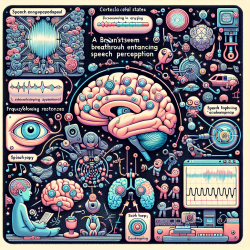Igniting Change: Transforming the Path of Juvenile Firesetters
In the realm of special education and mental health, understanding the complexities of juvenile behavior is paramount. One such behavior, juvenile firesetting, has often been overshadowed by other forms of delinquency. However, the research article "Self-Reported Juvenile Firesetting: Results from Two National Survey Datasets" sheds light on this critical issue, offering insights that can aid practitioners in addressing and mitigating this dangerous behavior.
Understanding the Findings
The study utilized two datasets from the Achenbach System for Empirically Based Assessment (ASEBA) to explore the relationship between academic performance, attention problems, and juvenile firesetting. The findings revealed that adolescents with lower academic performance and a poor attitude toward school are more likely to engage in firesetting. Additionally, attention problems were identified as a predictive factor for self-reported firesetting behavior.
In a normative sample, 4.5% of adolescents reported firesetting behavior. These individuals also exhibited higher levels of internalizing and externalizing behavior problems compared to their non-firesetting peers. The research highlights the significant role that academic struggles and attention issues play in the propensity for firesetting.
Implications for Practitioners
For practitioners working in schools, these findings underscore the importance of early identification and intervention. Here are some strategies that can be implemented:
- Early Screening: Utilize tools like the ASEBA to screen for academic and attention problems, which are indicators of potential firesetting behavior.
- Collaborative Interventions: Work closely with teachers, parents, and mental health professionals to develop comprehensive intervention plans that address both academic and behavioral challenges.
- Behavioral Support Programs: Implement programs that focus on improving academic performance and managing attention problems. These programs can include tutoring, counseling, and behavioral therapy.
- Parental Involvement: Engage parents in the intervention process, providing them with resources and strategies to support their child’s academic and behavioral development at home.
Encouraging Further Research
While this study provides valuable insights, it also highlights the need for further research. Practitioners are encouraged to explore the following areas:
- Investigate the long-term effectiveness of interventions targeting academic and attention issues in reducing firesetting behavior.
- Examine the role of other environmental and psychological factors that may contribute to firesetting.
- Explore the potential benefits of integrating technology-based interventions, such as online therapy platforms, to support students with attention and academic challenges.
By embracing these strategies and fostering a culture of continuous learning and research, practitioners can play a pivotal role in transforming the lives of at-risk youth.
To read the original research paper, please follow this link: Self-Reported Juvenile Firesetting: Results from Two National Survey Datasets.










